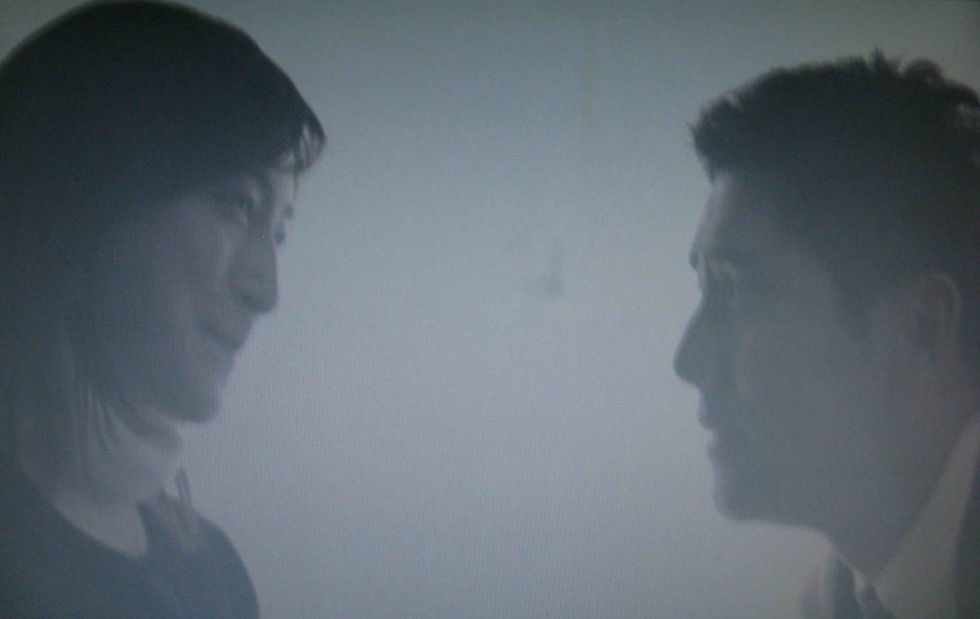"Keep the obsequy so strict”
- Kohinoor Dasgupta
- Jan 14, 2023
- 3 min read
Updated: Nov 1, 2024
By Kohinoor Dasgupta

(originally published on July 20, 2010 in my weblog Draupadiarjun)
Departures (2008), a Japanese film directed by Yojiro Takita, is a deeply emotional 131-minute exploration of departures, physical and spiritual.
The film follows a young man, Daigo Kobayashi, played by Masahiro Motoki, who dreamt of touring the world as an orchestra cellist. His Tokyo orchestra folds up; he sells his beloved 18-million-yen cello and moves with his wife (Ryoko Hirosue) to Yamagata, where he grew up and where his mother has left him a little cluttered house.
An ambiguous job advertisement changes his life. He becomes a professional encoffiner, a person who performs the traditional ritual of cleansing, dressing and placing a body in its coffin. This used to be the last loving service that a person received from his or her family members, but in modern times in Japan, it is part of the package offered by the undertaker, who employs an encoffiner (nokanshi) to take care of the purification and coffin-closing rites, performed in front of the bereaved.
Living every day in the company of the dead and their mourners, and unable to tell his wife exactly what he does for a living, Daigo turns to the little cello he played as a boy. His mother had wrapped it up and put it away, with it the chunky stone his father had given him and explained why. His father left his mother for another woman when Daigo was six.
In the little house, surrounded by memories of childhood, Daigo keeps his secret from his wife, his only family now, while at work he forges a bond with his boss (Tsutomu Yamazaki) and watches different families say their farewells to their dead.
Some moviegoers have found the movie trite, complained about why it won an Academy Award for Best Foreign Movie in 2009. I confess that the only parts I could have done without were those in which Boss and Shokichi Hirata get loquacious (in separate scenes) and most of the narrative involving Yamashita, Daigo’s childhood pal, where Tetta Sugimoto is reduced to playing a stock character.
The film has beautiful original music by Joe Hisaishi (who also scored the brilliant Spirited Away), and this music is used by Takita to show Daigo playing his schoolboy instrument with all the seriousness of an orchestra member in the spectacular solitude of nature, both in the harshness of winter and in the cherry-blossom spring. It looks shockingly stagey and Sound-of-Music-ish on film: surely the idea could have been expressed in a different way!
The film is memorable for the emotional punch it pulls. The death of a loved one, a mother, a father, a child, a grandparent or a friend, or even a friendless and solitary person, leaves an imprint on the people dealing with the event, reminds them about the meaning of life. No one can remain untouched in the presence of death. I don’t think the film glorifies the role of encoffiners or professionals who perform the end-of-life cleaning up. Rather, it talks of the finality of death, when no more chances will be available to those left behind to say or give anything to the person who has departed. The job of the encoffiner is shown to be as dignified or as cursory as the person discharging this duty wills it to be. It can reach tenderness and respect and it can be (especially with people without family to look out for them) brutally devoid of respect.
And what of those departures that are made by choice, when a husband deserts his wife, a mother her son, a wife her husband? The film seems to say that human ties are complex, and departures in no way sever memories, genes and other gifts given and taken.


Comments